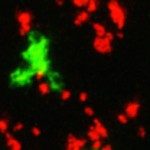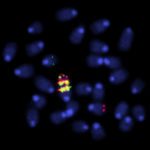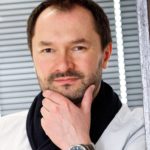Link to Pubmed [PMID] – 30470696
Sci Immunol 2018 Nov;3(29)
Tumors develop under the selective pressure of the immune system. However, it remains critical to establish how the immune system affects the clonal heterogeneity of tumors that often display cell-to-cell variation in genetic alterations and antigenic expression. To address these questions, we introduced a multicolor barcoding strategy to study the growth of a MYC-driven B cell lymphoma harboring a large degree of intratumor genetic diversity. Using intravital imaging, we visualized that lymphoma subclones grow as patches of sessile cells in the bone marrow, creating a spatially compartmentalized architecture for tumor diversity. Using multicolor barcoding and whole-exome sequencing, we demonstrated that immune responses strongly restrict intratumor genomic diversity and favor clonal dominance, a process mediated by the selective elimination of more immunogenic cells and amplified by epitope spreading. Anti-PD-1 treatment also narrowed intratumor diversity. Our results provide direct evidence that immune pressure shapes the level of intratumor genetic heterogeneity and have important implications for the design of therapeutic strategies.



